The first woman elected to lead Hong Kong has vowed to heal divisions amid demands for more democracy and protests at Beijing's growing influence.
Carrie Lam, 59, had the backing of the Chinese government in Beijing and was widely expected to win.
The chief executive is not chosen by public vote but by a 1,200-strong committee dominated by pro-Beijing electors.
Hong Kong is part of China but has a degree of autonomy from Beijing.
In her acceptance speech, she said: "Hong Kong, our home, is suffering from quite a serious divisiveness and has accumulated a lot of frustrations. My priority will be to heal the divide."
Speaking at Hong Kong's convention centre, she said she welcomed and encouraged a spectrum of voices and vowed to "tap the forces of our young people".
"They are often at the forefront of society, pulling and pushing us as a whole to make progress."
Mrs Lam also promised to uphold Hong Kong's "core values" such as "inclusiveness, freedoms of the press and of speech, respect for human rights" and the rule of law.
Carrie Lam faces uphill battle
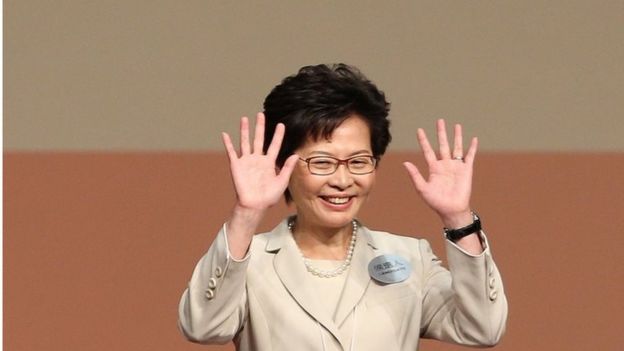 Image copyrightEPA
Image copyrightEPA
Mrs Lam's main rival, former finance chief John Tsang, was the public's favourite, according to opinion polls.
The third candidate, and the most liberal, was retired judge Woo Kwok-hing.
Mrs Lam garnered 777 votes to Mr Tsang's 365. Mr Woo received 21.
'Umbrella protests'
In a sign of continuing divisions, pro-democracy groups held protests outside the election venue, calling the process a sham.
Calls for fully free elections have failed, despite intense demonstrations, known as the "umbrella protests", in 2014.
Hong Kong's Election Committee picked Mrs Lam to succeed current leader CY Leung, who will step down in July. She was formerly his deputy.
Mrs Lam, a long-time civil servant, is nicknamed the nanny because of her background running numerous government projects.
During the 2014 protests, which were spearheaded by young people, she took the unpopular stance of defending Beijing's concessions for political reform.
This allowed Hong Kong people to choose their leader but only from pre-approved candidates.
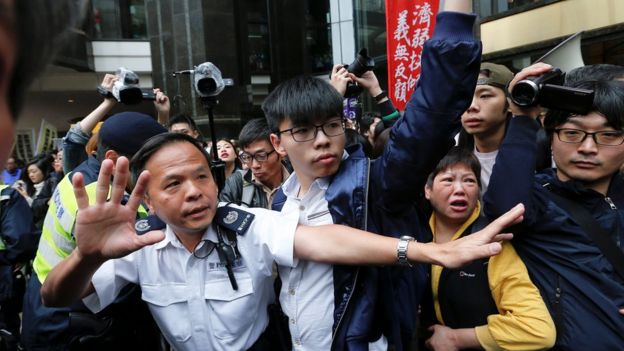 Image copyrightREUTERS
Image copyrightREUTERS
Pro-democracy activist Joshua Wong, who was among those protesting and was a lead figure in the umbrella movement, has called the electoral process "a selection rather than an election".
When the result was announced, he tweeted that Mrs Lam had been elected with "only 777 votes".
On Facebook, an online protest was launched called No Election in Hong Kong Now, which showed a video montage of regular citizens going about their business as the election took place to highlight how they were not entitled to participate.
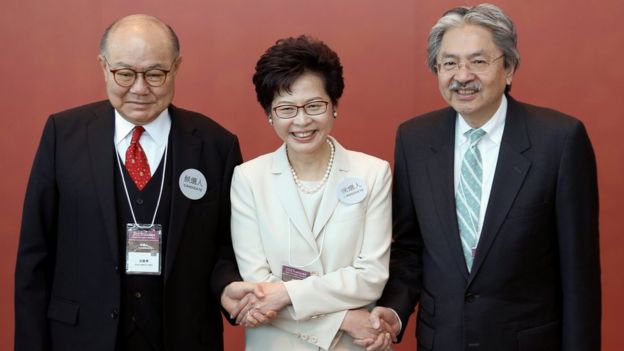 Image copyrightREUTERS
Image copyrightREUTERS
Mr Leung has proved unpopular with large swathes of Hong Kong residents who consider him too tightly aligned to Beijing.
At the end of the 2016, he made the unexpected announcement that he would not run again, citing family reasons.
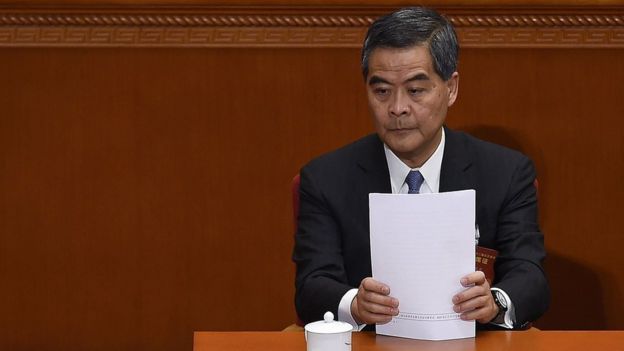 Image copyrightAFP / GETTY IMAGES
Image copyrightAFP / GETTY IMAGES
Hong Kong is governed under the principle of "one country, two systems", under which China has agreed to give the region semi-autonomous status since its 1997 handover from Britain.
The Election Committee includes 70 members of the territory's legislature, the Legislative Council - half of whom are directly elected.
However, most of the Election Committee is chosen by business, professional or special interest groups.
Critics say entities that lean towards Beijing are given disproportionately large representation.
Last year, pro-democracy activists secured 325 seats on the committee - the highest number ever, but not enough seats to determine the next chief executive.
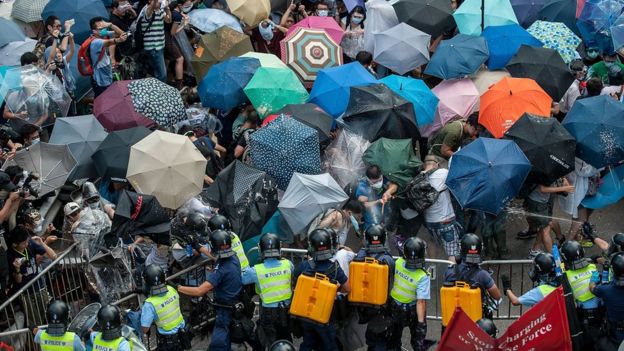 Image copyrightGETTY IMAGES
Image copyrightGETTY IMAGES

Comments